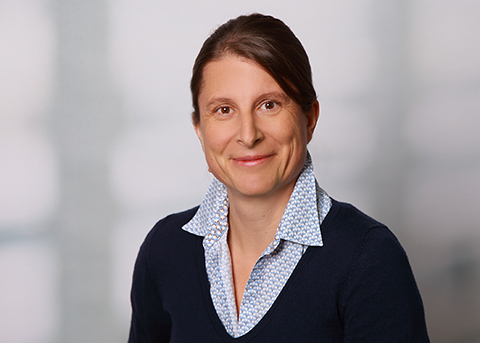- Über uns
- Junge NWG
- Aktivitäten
- Karriere
- Meetings

Prof. Dr. Katharina von Kriegstein
Prof. Dr. Katharina von KriegsteinSektionssprecherin "Kognitive Neurowissenschaften" Professor for Cognitive and Clinical Neuroscience Tel.: (+49) 0351 463-43900 E-Mail: katharina.von_kriegstein@tu-dresden.de |
 |
Curriculum Vitae |
|||||||||||||||||||||||||||||
EDUCATION
EMPLOYMENT
RESEARCH FOCUSThe main aim of my research programme is to understand the sensory processes that enable us to communicate successfully with each other. In our experiments we acquire behavioural and neuroimaging data and employ neurostimulation techniques. We develop novel communication models based on findings in typically developed participants. We use these models to better explain developmental communication difficulties(i.e., developmental dyslexia, person recognition deficits, autism spectrum disorder).We are particularly interested in the role of thalamo-cortical interactionsas well as multisensory interactionsin the analysis of communication signals. |
SELECTED HONOURS AND AWARDS
|
| 2021-now | Member of Faculty Council, Faculty of Psychology, TU Dresden, Germany |
| 2022-now | Vice-Dean, Faculty of Psychology, TU Dresden, Germany |
| 2022-now | Faculty Member of the International Max Planck Research School (IMPRS) on Cognitive Neuroimaging, https://imprs-coni.mpg.de/ |
SELECTED RECENT PUBLICATIONS
- 2024: Schelinski, S., Kauffmann, L., Tabas, A., Müller-Axt, C., & von Kriegstein, K..Functional alterations of the magnocellular subdivision of the visual sensory thalamus in autism, Proceedings of the National Academy of Sciences of the United States of America, 121(47), e2413409121. https://doi.org/10.1073/pnas.2413409121
- 2024: Müller-Axt, C., Kauffmann, L., Eichner, C., & von Kriegstein, K..Dysfunction of the magnocellular subdivision of the visual thalamus in developmental dyslexia.Brain. https://doi.org/10.1093/brain/awae235
- 2023: Mathias, B., & von Kriegstein, K. (2023). Enriched learning: behavior, brain, and computation. Trends CognSci, 27(1), 81-97. https://doi.org/10.1016/j.tics.2022.10.007
- 2020: Tabas, A., Mihai, G., Kiebel, S., Trampel, R., & von Kriegstein, K. (2020). Abstract rules drive adaptation in the subcortical sensory pathway. Elife, 9. https://doi.org/10.7554/eLife.64501
- 2019: Mihai, P. G., Moerel, M., de Martino, F., Trampel, R., Kiebel, S., & von Kriegstein, K. (2019). Modulation of tonotopic ventral medial geniculate body is behaviorally relevant for speech recognition. Elife, 8. https://doi.org/10.7554/eLife.44837.001
- 2018: Roswandowitz, C., Kappes, C., Obrig, H., & von Kriegstein, K. (2018). Obligatory and facultative brain regions for voice-identity recognition. Brain, 141(1), 234–247. https://doi.org/10.1093/brain/awx313
- 2017: Müller-Axt, C., Anwander, A., & von Kriegstein, K. (2017). Altered Structural Connectivity of the Left Visual Thalamus in Developmental Dyslexia. Current Biology, 27(23), 3692–3698.e4. https://doi.org/10.1016/j.cub.2017.10.034